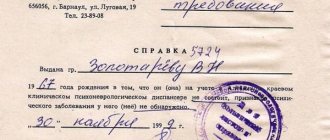Who is a trustee and guardian
A guardian is a person who provides protection of rights, living conditions and care for people who are unable to do this themselves. He performs parental functions and resolves the child’s life issues.
People in need of care include the following:
- orphaned children under 14 years of age;
- incompetent citizens of any age.
Children need guardianship under the following circumstances:
- biological parents have been deprived of parental rights, are missing, are incapacitated, or due to serious illness are unable to fulfill their obligations;
- parents are absent for objective reasons (on a temporary business trip, hospitalized).
Guardianship can be temporary or permanent.
A trustee is a person who creates the necessary living conditions for the realization of the property and social interests of the child. Guardianship is established over children aged 14-18 and partially incompetent persons.
Official representatives of children have the right to claim many government benefits, payments and additional payments, many of which are established by local administrative authorities. If temporary guardianship has been issued, then the guardians are not entitled to financial support.
Official representatives of adults who are completely or partially deprived of legal capacity do not receive government payments, with rare exceptions.
If you have any questions, you can contact us for free at the following phone numbers:
- Moscow ext. 143
- St. Petersburg ext. 702
- RF ext. 684
If you have any questions, you can consult for free by chatting with a lawyer at the bottom of the screen or by calling the following phone numbers:
- Moscow ext. 143
- St. Petersburg ext. 702
- RF ext. 684
Who has the right to become a child's guardian? His responsibilities
There are very strict rules for guardians!
There are strict requirements for a child's guardian. A person who wishes to become a guardian of a minor child must be an adult and legally capable. The moral character of the applicant, his personal and moral qualities must be checked, since the guardian is responsible for the upbringing of the ward and sets an example for him. The following persons cannot become guardians:
- People deprived of parental rights. Guardianship authorities will definitely check all documents of future guardians. If it is discovered that they have already been terminated or have limited parental rights, they will not be appointed as guardians.
- Convicted people. There are nuances here. The length of the criminal record and the severity of the crime will be considered, but most often convicted people are denied the right of guardianship, especially if the crime was committed against the health or life of a person.
- People suffering from alcoholism or drug addiction. Most often, such people are recognized as partially incompetent, and guardianship authorities will not entrust children to them. It is very important that the authorities promptly identify such tendencies in the future guardian.
- People with serious chronic diseases. Some serious illnesses do not allow caring for wards, so guardianship may be denied.
- Completely or partially incapacitated people. Most often, such people themselves need guardians. If a married couple wishes to become guardians, but one of the spouses is incapacitated, guardianship will be denied.
- People who were once guardians and were deprived of these rights. As a rule, second chances are not given. If a person has already assumed the duties of a guardian, but was deprived of them for improper performance, most likely the court will deny him the right of guardianship next time. The same applies to people who have ever adopted a child, but are deprived of this right.
- People without permanent residence. The child will not be entrusted to people who do not have living space and are not registered anywhere. It is very important to create proper living conditions for the child.
The priority of custody of the child is given to his relatives: grandparents, uncles, aunts, cousins.
The guardian is obliged to protect the rights of the child, represent his interests, provide the necessary care, take care of his health, moral and spiritual development, monitor his academic success, help in every possible way and provide optimal conditions for his spiritual growth.
Statistics on guardianship of minors in the Russian Federation
In Russia, guardianship is the most common form of family arrangement. At the end of 2010, there were 430,604 children in Russia, of whom:
- citizens caring for children of strangers - 102,981 people.
- voluntarily placed under the guardianship of parents - 36,148 people.
At the end of 2009, there were children being raised in families:
- under kinship care - 343,342 children.
- under guardianship by strangers - 96687.
For different types of guardianship:
- on a free form of guardianship - 313908.
- in foster families - 68037.
- patronage - 2424.
- other types of paid guardianship - 15167.
- voluntarily transferred by parents - 40493.
Differences between a guardian and a trustee
The difference between guardianship and trusteeship is as follows. The guardian independently decides all issues regarding the ward and bears full responsibility for his actions. The trustee resolves all issues of the ward together with him, coordinating with the ward all planned actions.
The guardian and trustee must perform the following duties:
- caring for the physical condition and health of the person under care;
- informing authorized bodies that the family is changing their place of residence;
- living with the person under guardianship (legislation allows a child to live independently if he is 16 years old and guardianship officials agree to this);
- annual reporting on the expenditure of funds that are transferred to the ward.
The guardian and trustee can manage the child’s money if the child agrees to do so. For this purpose, a power of attorney is usually issued.
The differences between guardianship and trusteeship also lie in the individual obligations of these persons.
The guardian has the right or obligation to:
- make transactions on behalf of the ward (except for those that can only be carried out in person - for example, transfer of property by inheritance);
- file a claim in court that the transaction made by the ward is invalid;
- bear property liability for damage caused by the ward, and be responsible for the child’s transactions.
The trustee is obliged or has the right:
- obtain permission for the ward to conduct transactions (except for those transactions that the ward can conduct himself);
- file a lawsuit in court to declare the ward’s transaction and its legal consequences invalid;
- bear subsidiary property liability.
The differences between a guardian and a trustee are summarized in the table:
| Guardian | Trustee | |
| Ward | Minors, incapacitated persons | Children 14-18 years old and persons with limited legal capacity |
| Carrying out transactions | Guardian on behalf of the ward | Under guardianship with the permission of the guardian |
| Responsibility for transactions of the ward | Property liability | Property liability, if the guardian gave permission to a transaction that knowingly led to damage to the property of the ward |
| Protecting the interests of the ward | Legal representative without separate powers | Legal representative only in cases where the ward is unable to protect his interests |
At the same time, the legislation establishes prohibitions that apply to both guardians and trustees:
- You cannot use the property of those under guardianship for personal interests;
- You cannot enter into credit or loan agreements on behalf of the ward acting as a borrower;
- It is impossible to draw up an agreement on the transfer of the property of the person under guardianship for use if the period of operation is at least 5 years, as well as on the delivery of the object as collateral, for rent, or for legal transactions.
The procedure for establishing guardianship and appointing a guardian is determined by Art. 34 and 35 of the Civil Code of the Russian Federation.
Article 34
2. The court is obliged, within three days from the date of entry into legal force of the decision to recognize a citizen as incompetent or to limit his legal capacity, to inform the guardianship and trusteeship authority at the place of residence of such a citizen about this in order to establish guardianship or trusteeship over him.
Article 35
1. A guardian or trustee is appointed by the guardianship and trusteeship authority at the place of residence of the person in need of guardianship or trusteeship, within a month from the moment when the said bodies became aware of the need to establish guardianship or trusteeship over the citizen. If there are circumstances worthy of attention, a guardian or trustee may be appointed by the guardianship and trusteeship authority at the place of residence of the guardian (trustee). If a person in need of guardianship or trusteeship is not appointed a guardian or trustee within a month, the performance of the duties of a guardian or trustee is temporarily assigned to the guardianship and trusteeship body.
4. Incompetent or not fully capable citizens placed under the supervision of educational organizations, medical organizations, organizations providing social services, or other organizations, including organizations for orphans and children left without parental care, guardians or trustees are not are appointed. The fulfillment of the duties of guardians or trustees is assigned to these organizations.
Thus, after the decision to recognize a citizen as incompetent comes into force, the court within three days notifies the guardianship and trusteeship authority at the citizen’s place of residence. From the moment the court notifies the guardianship and trusteeship authority of the need to appoint a guardian for a citizen deprived of legal capacity, the countdown of the regulated time (one month) begins, during which a guardian must be appointed.
If a citizen deprived of legal capacity is placed under supervision, for example in a psychoneurological boarding school, a guardian is not assigned to him. The duties of the guardian will be performed by the boarding school.
If a guardian is not found within the period allowed by law, the performance of the duties of a guardian is temporarily assigned to the guardianship and trusteeship body. In practice, this means that a patient suffering from dementia will be sent to a hospital and eventually transferred to a PNI, who will then act as a guardian.
Who can be appointed as a guardian?
This is how the legislator answers this question
Article 35 of the Civil Code of the Russian Federation
2. Only adults and capable citizens can be appointed as guardians and trustees. Citizens deprived of parental rights, as well as citizens who, at the time of establishment of guardianship or trusteeship, have a criminal record for a deliberate crime against the life or health of citizens cannot be appointed as guardians and trustees.
3. A guardian or trustee may be appointed only with his consent. In this case, his moral and other personal qualities, ability to fulfill the duties of a guardian or trustee, the relationship existing between him and the person in need of guardianship or trusteeship, and, if possible, the desire of the ward must be taken into account.
Having decided on a guardian, the guardianship and trusteeship authority issues a special act on the appointment of a guardian, a personal file is opened for the citizen declared incompetent, where all his main documents, an inventory of his property, etc. are stored.
Let us add, just in case, that the cited article of the law also notes that the appointment of a guardian can be challenged in court by interested parties.
Re-registration of guardianship to another person is not provided. The appointment of a new guardian is carried out in the same manner as the appointment of the previous one.
Rights and responsibilities of a guardian
Being a caregiver is quite a tough job. The guardian is responsible for protecting the rights and interests of the incapacitated citizen. The law puts it this way:
Article 31
1. Guardianship and trusteeship are established for incapacitated or not fully capable citizens.
2. Guardians and trustees act in defense of the rights and interests of their wards in relations with any persons, including in the courts, without special authority.
Article 32
2. Guardians are representatives of wards by force of law and make all necessary transactions on their behalf and in their interests.
Guardianship responsibilities are performed free of charge. The legislation of the Russian Federation does not provide for the payment of benefits to guardians of adult citizens recognized by the court as incompetent.
In accordance with Art. 18 Federal Law of April 24, 2008 “On guardianship and trusteeship”, the guardian is obliged to accept the property of the ward according to the inventory from the persons who stored it, within three days from the moment his rights and obligations arise. An inventory of the ward's property is compiled by the guardianship and trusteeship authority in the presence of the guardian, representatives of the homeowners' association, housing, housing construction or other specialized consumer cooperative that manages the apartment building, management organization or internal affairs bodies. When compiling an inventory of the ward's property, other interested parties may be present. An inventory of the ward's property is drawn up in two copies and signed by all persons participating in its preparation. One copy of the inventory is transferred to the guardian or trustee, the other copy of the inventory is subject to storage in the ward’s file, which is maintained by the guardianship and trusteeship authority.
If necessary, if the interests of the ward require it, the guardian is obliged to immediately file a claim in court to recover the ward’s property from someone else’s illegal possession or take other measures to protect the property rights of the ward.
It is important to understand that guardians do not have ownership rights to the property of wards , and wards do not have ownership rights to the property of guardians. This rule also applies to the amounts of alimony, pensions, benefits and other social benefits provided for the maintenance of wards. At the same time, the guardian, although he does not own, can dispose of the property and income of the ward, including income due to the ward from the management of his property. The order is made solely in the interests of the ward and with the prior permission of the guardianship and trusteeship authority.
Amounts of pensions, benefits, as well as other funds paid for the maintenance of the ward are subject to credit to a separate nominal account opened by the guardian, and are spent by the guardian without the prior permission of the guardianship and trusteeship authority. Then the guardian provides an annual report on the expenditure of amounts credited to a separate nominal account in the manner prescribed by the Federal Law “On Guardianship and Trusteeship”.
A report on the storage and use of the ward’s property is prepared in writing and sent to the guardianship and trusteeship authority no later than February 1 of the current year. Documents confirming expenses (copies of sales receipts, receipts for payment of taxes, insurance amounts and other payment documents) are attached to it.
The requirements for the guardian’s report are set out in the Federal Law “On Amendments to Article 25 of the Federal Law “On Guardianship and Trusteeship” dated December 31, 2017 N 495-FZ.
Here is the text:
2. The report of the guardian or trustee must contain information about the condition of the property and the place of its storage, the acquisition of property to replace alienated property, income received from the management of the ward’s property, and expenses made at the expense of the ward’s property, including information on the expenditure of amounts credited to a separate nominal account , opened by a guardian or trustee in accordance with paragraph 1 of Article 37 of the Civil Code of the Russian Federation. Documents (copies of sales receipts, receipts for payment of taxes, insurance amounts and other payment documents) confirming the specified information are attached to the report of the guardian or trustee, with the exception of information about expenses incurred at the expense of the ward’s funds for food, basic necessities and other small household needs. . A guardian who is the parent of an incompetent citizen who is disabled since childhood, living together with such a citizen and raising him from birth until he reaches the age of eighteen, or the adoptive parent of such a citizen, living together with him and raising him from the moment of adoption until he reaches the age of eighteen. age of eighteen years, has the right not to include in the report information about the expenditure by this guardian of amounts credited to a separate nominal account opened by the guardian. The guardianship and trusteeship body, if it detects improper fulfillment by this guardian of his duties to protect the property of the ward and manage the property of the ward, has the right to require this guardian to provide a report on the storage, use of the ward’s property and on the management of the ward’s property for previous periods, containing information on the expenditure by this guardian of the amounts credited to a separate nominal account opened by the guardian.
Download the report form
Read about the report separately here:
Guardian's responsibility
Here are some problems that may arise if the guardian for some reason “didn’t watch.”
1. When making transactions on behalf of an incompetent person, the guardianship and trusteeship authorities always participate; in particular, they give consent to transactions, including transactions with the property of the incompetent person. Thus, a conscientious guardian always has the opportunity to make sure that when making a particular transaction in the interests of an incapacitated person, he acts within the framework of the law. If this is a trustworthy transaction, then the responsibility of the guardian, in general, is simply related to the normal fulfillment of obligations under the transaction.
If it so happens that the incompetent citizen made the transaction himself, by virtue of Art. 171 of the Civil Code of the Russian Federation, such a transaction is void. Each party to such a transaction is obliged to return to the other everything received in kind, and if it is impossible to return what was received in kind, to reimburse its value in money. In court, a transaction made under such circumstances, but leading to the benefit of the incapacitated person, at the request of the guardian, can be recognized as valid.
2. If an incompetent citizen caused harm to other citizens (or organizations) or their property, in accordance with the provisions of Art. 1076 of the Civil Code of the Russian Federation, his guardian or the organization obligated to supervise him shall compensate for the harm, unless he proves that the harm arose not through his/her fault. There is also such a circumstance: if the guardian does not have sufficient funds to compensate for the harm caused to the life or health of the victim, and the harm-doer himself has such funds, the court, taking into account the property status of the victim and the harm-doer, as well as other circumstances, has the right to make a decision on full compensation for harm or partly at the expense of the harm-doer himself. Please note that everything is resolved in court.
3. If harm was caused to an incompetent citizen, the guardian is obliged to defend the rights and interests of the incompetent person and take the necessary actions for this.
It will matter why such a situation arose, for what reason the incapacitated person was left without supervision, etc. The guardian's actions will be assessed. The guardianship and trusteeship authorities that supervise the activities of guardians will make a decision in case of improper performance of their duties by the guardian, in case of leaving the ward without supervision and necessary assistance, in case of spending property for other purposes, etc. (see clause 3 of Article 26 of Federal Law No. 48-FZ), guided by Art. 39 of the Civil Code of the Russian Federation, the guardianship and trusteeship authority may remove the guardian from performing his duties and take measures to bring the perpetrator to justice. Tags: #Dementia
Requirements
Only a legally capable person over 18 years of age has the right to become a guardian or trustee.
The legislation establishes the category of persons who cannot formalize guardianship or trusteeship:
- minors (even if they have acquired full legal capacity - for example, they have registered an individual entrepreneur or registered a marital union);
- persons who have been deprived of parental rights (or limited in them);
- people diagnosed with drug/alcohol addiction;
- people who were already guardians/trustees in the past, but were subsequently removed from fulfilling these obligations;
- people who were adoptive parents in the past, but due to illegal actions they lost this status;
- people suffering from a serious illness, as a result of which they are unable to provide full care for their child.
Persons for whom guardianship and trusteeship are assigned
The appointment of guardianship under current legislation is carried out under the circumstances and in the event that:
- a minor child was left without parents;
- a person recognized as partially or completely incompetent.
The establishment of guardianship is carried out both by special bodies and by court decision, based on a submission from the authorities appointing guardianship. As a practice, it is assigned to the main place where the ward or the caregiver himself lives.
Registration of guardianship/trusteeship
Anyone wishing to take custody or guardianship must provide the following documents to the territorial department of social protection of the population:
- statement;
- a certificate from the place of employment containing information about the position and average earnings for the year;
- certificate of other sources of income for unemployed persons (for example, receipt of a pension);
- an extract from the house register or other title documentation for housing;
- a photocopy of the financial personal account from the residential address;
- a certificate stating that the applicant has no criminal record (issued at the police department);
- medical report on the current state of health;
- a photocopy of the certificate of registration of the marital union;
- written consent to the registration of guardianship/trusteeship on the part of other family members (including children over 10 years old);
- a certificate stating that the residential premises comply with all standards and requirements;
- autobiography of the applicant.
1. How to obtain guardianship for a child? 2. Guardianship of an elderly person
Where is guardianship formalized?
The candidate for guardianship submits a package of documents to the guardianship and trusteeship authorities. After studying the documents, the living conditions in which the ward will be located are checked within 7 days. The most important requirement for a child is the presence of a separate sleeping place, as well as a place for activities. A child with a disability must be provided with a separate room.
15 days are given to make a decision on establishing guardianship.
The candidate for guardianship receives a conclusion on permission or refusal of guardianship. If the social service refuses, its conclusion can be appealed in court.
The resolution is provided:
- to school;
- hospital, clinic;
- law enforcement agencies (if necessary);
- while traveling.
Guardianship and Trusteeship Service
Who should be responsible for placing incapacitated citizens under the guardianship of individuals or legal entities? According to paragraph 2 of Art. 121 of the RF IC, these functions are assigned to district or city departments of guardianship and trusteeship (DTC). These bodies are obliged:
- Find and then keep records of all citizens in need of guardianship or care, regardless of their age.
- Select guardian candidates for specific wards and provide them with training.
- Carry out the entire procedure for appointing and registering guardianship or trusteeship.
- Check the living conditions of potential guardians before appointing guardianship.
- Protect the rights of incapacitated and partially capable citizens.
- Monitor guardianship families to ensure that substitute parents fulfill their duties.
- Control the use, as well as the safety of the property of the wards, including allowing or prohibiting any property transactions with the property of the ward.
- In case of gross violations of guardianship duties, or abuse by the substitute parent of their guardianship rights, remove them from the duties of raising a minor by terminating the guardianship agreement.
Release from obligations
A guardian and trustee may be released from performing their duties in the following cases:
- the child was adopted or returned to his parents;
- a person improperly fulfills his obligations, leaves the child without supervision and assistance (in this case, he will not only be deprived of the appropriate status, but will also be held accountable depending on the severity of the consequences);
- the guardian or trustee himself asked to be released from fulfilling obligations to the child.
Purpose of establishing guardianship or trusteeship
Every citizen of the Russian Federation by law has two legal characteristics:
- Legal capacity . It implies the ability of a person to have the rights and obligations provided for by Russian legislation.
- Capacity . This implies the ability of every citizen of the Russian Federation to exercise his rights, have certain responsibilities, and also act independently in certain legal relations between him and other individuals or legal entities.
The first legal characteristic – legal capacity – is established for every citizen of the Russian Federation from birth and is valid until his death. With legal capacity, everything is somewhat different:
- Until the age of fourteen, a citizen has no legal capacity at all.
- From the day of age 14, a citizen receives limited legal capacity.
- A person becomes fully capable on the day he reaches adulthood, or on the day he becomes emancipated.
- Legal capacity may be limited by a court on the grounds established in Russian legislation.
- A citizen can be completely deprived of legal capacity, but only on the basis of a court decision that has entered into force.
If a person has limited legal capacity or is completely deprived of it, he cannot make legally significant transactions, enter into any legal relations, or independently apply to court or other government bodies. In this case, a guardian or trustee acts on his behalf - a person appointed by the state, represented by local government bodies, who is obliged to take care of the incapacitated citizen.
In some cases, incompetent citizens are necessarily placed in specialized medical institutions, for example, in closed psychiatric clinics, since they pose a threat to the health or life of third parties. In such situations, an individual cannot be appointed as a guardian, so mentally ill people are transferred to the guardianship of the administration of the institution in which they are placed for treatment.
Features and nuances
In addition to guardianship and trusteeship, there is another form of providing for people - patronage. This form is established for persons over 18 years of age who suffer from serious health problems and cannot protect their interests or exercise their rights. The foster relationship is not associated with the limitation of legal capacity or its complete deprivation; there is no need to exercise full control over the ward. A person makes decisions independently, without obtaining permission, and an assistant only facilitates their implementation.
A civil contract is drawn up with the assistant, the format of which depends on the services provided. Thus, a trust management agreement or mandate may be concluded. The contract is concluded for a limited period, services are provided on a paid basis. Once the contract expires, the patronage is no longer valid.
To apply for patronage, you must contact the territorial department of the guardianship authorities with an application and documents.
The necessary conditions
A citizen who wishes to be a guardian must be fully capable and of legal age.
The following citizens are not considered as candidates for guardians:
- emancipated persons aged 16 to 18 years;
- limited legal capacity;
- registered in a drug treatment or psychiatric dispensary;
- convicted for crimes against the person, life and health of citizens;
- deprived of parental rights;
- limited parental rights;
- citizens deprived of the right to be guardians;
- persons who do not have permanent registration and an apartment;
- citizens whose spouses have been declared legally incompetent;
- persons deprived of the right to be adoptive parents;
- citizens who have illnesses that prevent them from fulfilling their parental responsibilities.
Since 2021, the legislation has been amended. Now information about persons who have been deprived of parental rights, limited in them, released from the duties of a guardian and deprived of the right to be adoptive parents, is transferred to the regional data bank.
If previously information was requested only in regions where the person was previously registered, now it will be more difficult to mislead specialists. The information is transferred to a common information system throughout the country.









